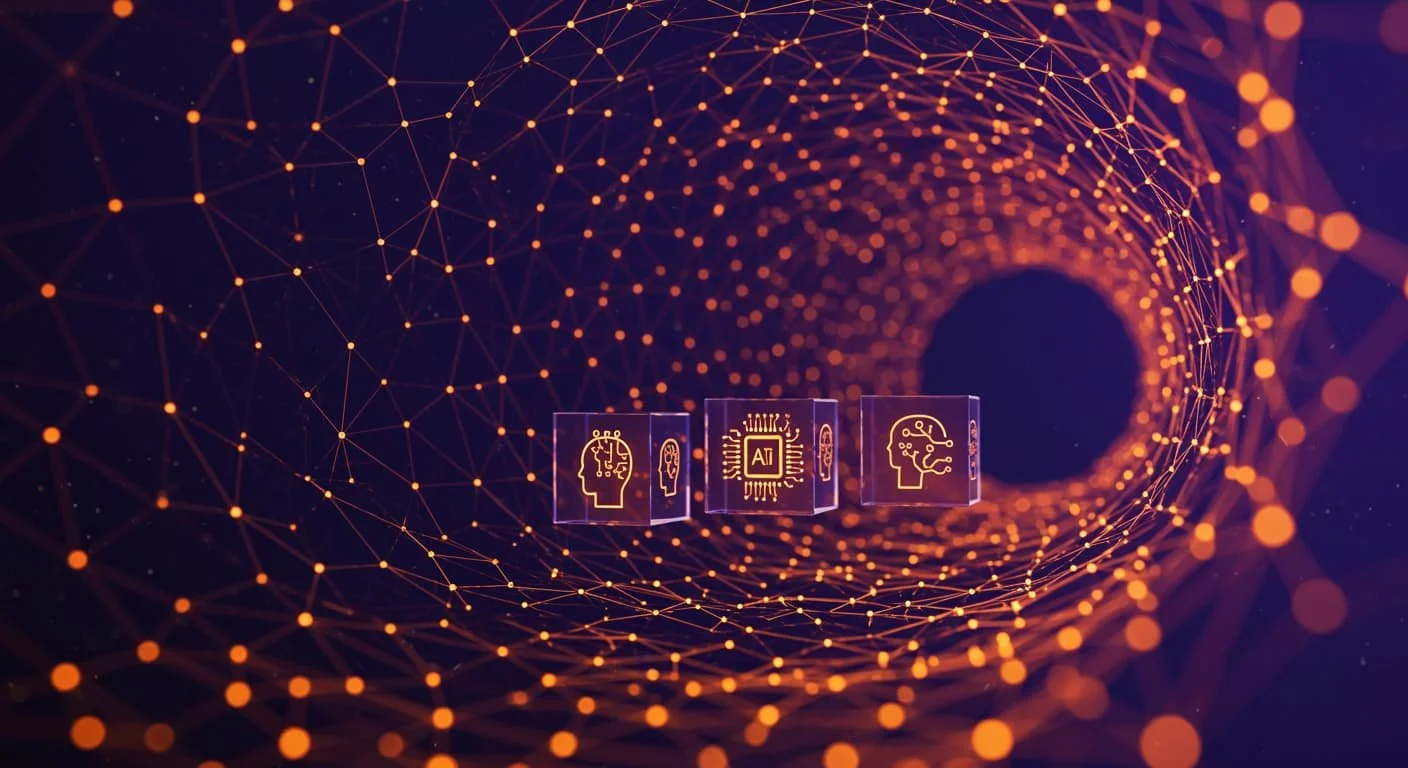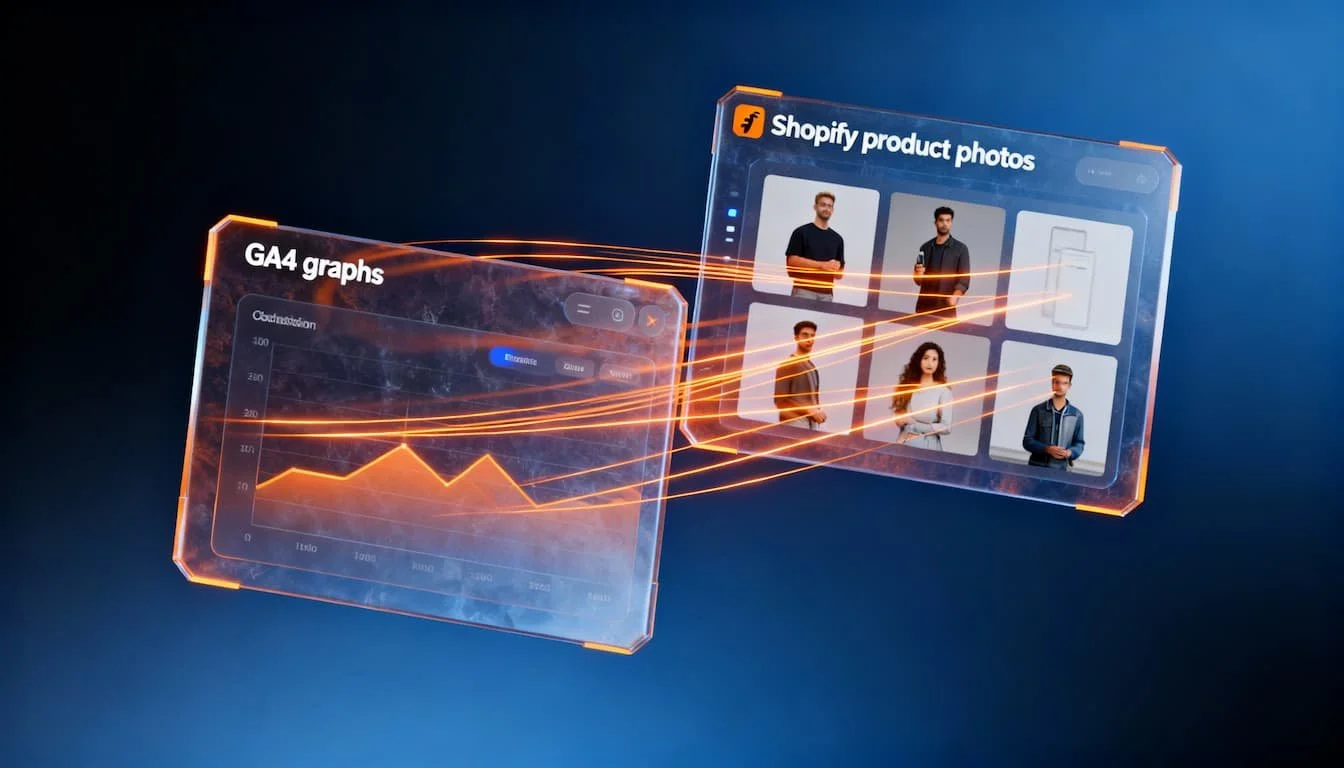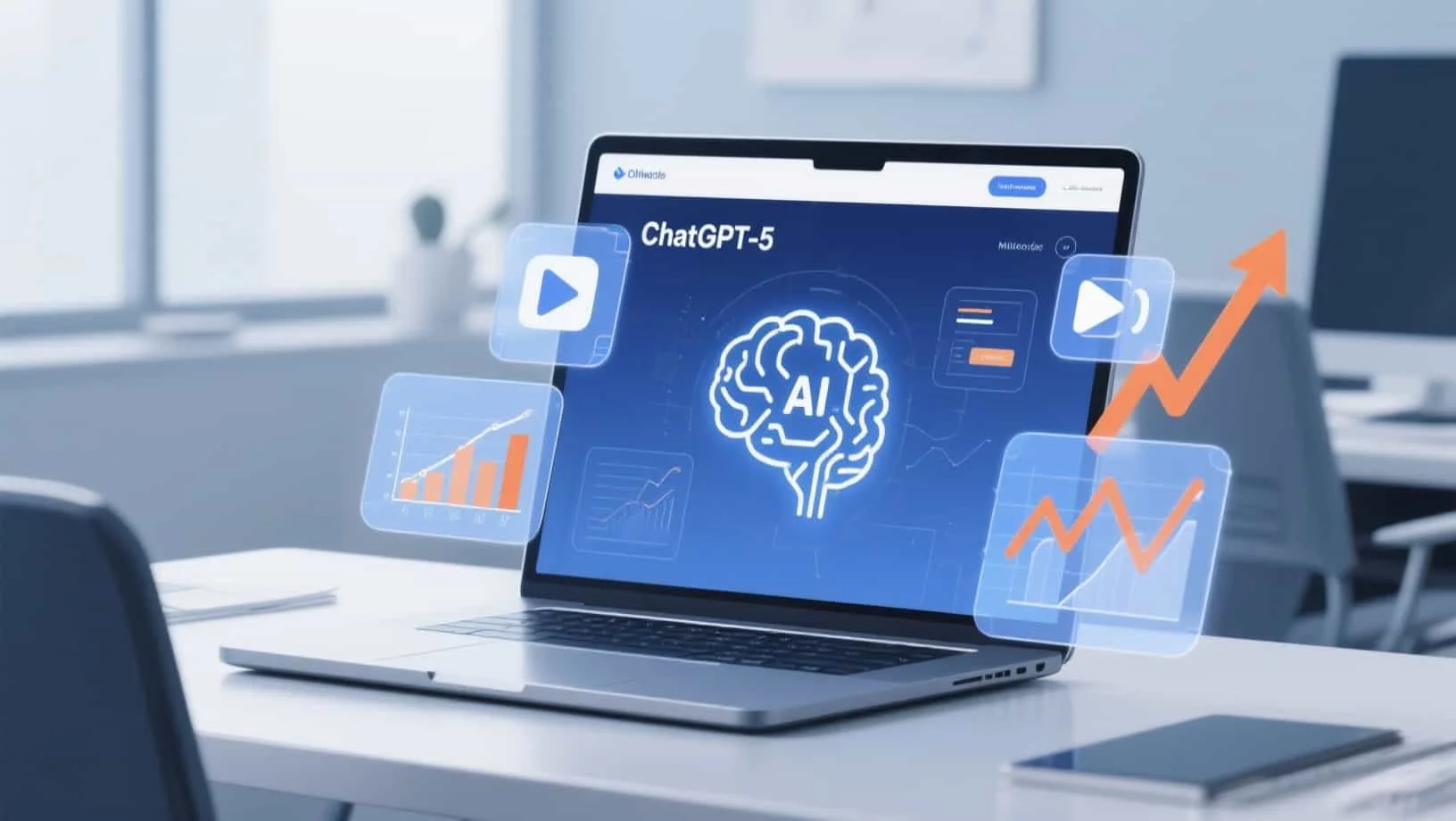Case Bastiano: how a caterer tripled his turnover digitally
Corona forced many companies to make rapid digital adjustments. For Bastiano, an Italian caterer in Bonheiden, this crisis became the starting point of incredible growth. From a few sporadic online orders to a thriving digital order stream - this is the story of a successfuldigital transformation.
- Corona crisis as catalyst: Forced switch to take-away became the start of an incredible business boost
- Wix to Shopify migration: Functional e-commerce environment, sales-oriented platform for better conversions
- Orders increased tenfold: From a few digital orders to peak volumes via advertising strategy
- Funnel-based approach: Awareness (reach) → Consideration (traffic) → Conversions + Catalog sales
- Continued growth: Even after corona, takeaway and deliveries continue, business segment parties return
- Continuous optimization: Adjusting advertising budgets, Google Analytics insights for continuous improvement
The perfect storm: corona as a catalyst
When the lockdown measures were announced in early 2020, manager Debby Swinnen faced a dilemma. Her Italian caterer, who had already received a Gault Millau rating, could suddenly only offer take-away and home delivery.
"Ironically, that forced switch was the beginning of an incredible business boost for Bastiano," Debby recalls. "I knew I had to ride the wave of the take-away trend, but I couldn't get beyond some tinkering in Wix."
This experience is not unique. According to recent figures from DHL E-commerce, the number of online orders in the food delivery sector increased by a staggering 22.2% worldwide in 2024. In Belgium alone, an estimated 450 million packages were delivered in 2024 - an increase of more than 300% since 2010.
“The pandemic forced the restaurant industry to reinvent itself overnight, from a primarily in-store dining experience to an omnichannel approach. Restaurants that already had digital solutions were better equipped to respond quickly and flexibly to the pandemic”
Source: Future Platforms - How COVID-19 Accelerated Digital Transformation in Restaurant Industry
From Wix to Shopify: technical foundation for growth
The first crucial step was replacing the existing Wix website with a professional Shopify environment. This choice was no coincidence - research shows that Shopify had a market share of 30% in the US e-commerce software market in 2024, while the platform is specifically designed for sales.
"In no time, Frederiek set everything up. Very functional and it looks beautiful too," says Debby about the migration from Wix to Shopify. The benefits of Shopify quickly became clear:
Why Shopify over Wix?
The differences between the two platforms are significant for e-commerce applications:
Conversion optimization: Shopify is built from the ground up for sales, with a streamlined checkout process that optimizes conversions. Wix, on the other hand, is primarily a website builder with e-commerce functionalities as an addition.
Scalability: Where Wix quickly reaches its limits with growing order volumes, Shopify can process thousands of orders per minute without performance issues.
Mobile optimization: With 45% of consumers having fully switched to mobile shopping since March 2020, Shopify offers superior mobile checkout experiences.
Integration options: Shopify's extensive app ecosystem enables seamless integrations with marketing tools, analytics, and payment systems. Read more about the best Shopify apps for 2025.
The advertising strategy: phased growth through smart targeting
After the technical foundation, the rollout of a well-thought-out advertising strategy followed. This approach follows the classic funnel model, but applied to the specific situation of a local caterer during the pandemic.
“25% of restaurants did not survive the closure after two months, and approximately 65% of respondents felt they could not keep their restaurants open if the pandemic restrictions continued until 2021. Consumers have become accustomed to ordering takeaway food”
Source: PMC - Food Services in Times of Uncertainty Research
Phase 1: Building Awareness
In this phase, the focus was on reaching new customers in the Mechelen region. Broad target group targeting sparked interest in Bastiano's unique Italian proposition. Video ads showed the artisanal preparation and quality of the ingredients.
The timing was crucial. Research from Square shows that 67% of consumers expect personalization in their digital shopping experience, while 71% want customized recommendations for food & dining. Read more about effective advertising strategies here.
Phase 2: Stimulating Consideration
Traffic ads encouraged interested users to visit the website. Retargeting campaigns targeted website visitors with seasonal content, social proof, and special offers.
This phase benefited from a growing trend: according to Statista, Belgians spent €17.4 billion online in 2024, an increase of 6.7% compared to 2023. Discover more about the e-commerce trends in Belgium.
Phase 3: Optimizing Conversion
The conversion campaigns had two pillars:
Direct conversions: Stimulating specific actions such as 'add to shopping cart' and actual purchases.
Catalog sales: Product ads generated directly from the webshop catalog, focusing on seasonal products and popular dishes. Read more about conversion optimization for e-commerce.
Results that speak volumes: from 10 to 100+
The figures show impressive growth:
Direct impact
10x more orders: From a few orders per week to daily order flows
35% increase in organic traffic: Through SEO optimization and structured data implementation
Continued growth: Even after the corona measures were lifted, digital sales remained stable
SEO performance
Bastiano achieved top positions for important search terms within 18 months:
Caterer Bonheiden: position 1
Italian Bonheiden: position 1
Takeaway Italian: position 2
Pizza Bonheiden: position 5
Take away Bonheiden: position 4
These results demonstrate the power of local SEO in Belgium and the correct implementation of structured data.
“The opportunity in retail lies in creating a seamless experience between online and offline. Every successful retailer must look at these channels not as separate companies with different P&Ls, but as a seamless experience”
Source: We Make Websites - 30 E-Commerce Quotes to Motivate You
The power of integrated channels
Bastiano's success is not only due to technology, but to the intelligent integration of various channels:
Social media as an extension
Facebook and Instagram functioned not only as advertising channels, but as community builders. Weekly posts with behind-the-scenes content, seasonal products, and customer stories created a loyal following of thousands of authentic followers.
Content marketing
Structured data implementation ensured rich snippets in Google, making Bastiano stand out from competitors. Blog content about Italian culinary traditions and seasonal products reinforced their position as experts.
Email marketing
Automated flows for new customers, seasonal offers, and reminders for events consistently generated repeat purchases. Discover the power of lead generation and follow-up.
“2025 marks five years since the pandemic reshaped the restaurant industry. One of the biggest lessons we have learned is the crucial role of agility and technology in supporting long-term success”
Source: Modern Restaurant Management - Pandemic Reflections Restaurant Industry Lessons
Lessons for other entrepreneurs
The Bastiano case illustrates some important principles for successful digital transformation:
1. Platform choice is crucial
The switch from Wix to Shopify was fundamental to their success. For serious e-commerce activities, a specialized platform offers clear advantages in conversion, scalability, and user-friendliness. Read more about Shopify versus other e-commerce platforms.
2. Timing and context are everything
Corona created a 'perfect storm' of demand for delivery and willingness to order online. Smart entrepreneurs anticipate trends and seize opportunities.
3. A phased approach works
Instead of rolling everything out at once, Bastiano followed a logical order: first the technical foundation, then traffic building, and finally conversion optimization. This methodology is also reflected in our performance marketing approach.
4. Local can be global
Despite the local focus, Bastiano grew into a regional player. Digital tools made it possible to reach beyond traditional geographical boundaries.
The role of expertise and guidance
A crucial element in Bastiano's success was professional guidance. Debby openly acknowledges this:
"Frederiek kept contributing ideas and adjusting things all the time, adjusted advertising budgets, and extracted all possible information from Google Analytics to do even better. I will be eternally grateful to him for the boost he gave Bastiano."
This underscores an important lesson: digital transformation is not a one-time action, but a continuous process of optimizing and adapting to changing circumstances. Discover why hiring a digital expert is often smarter than a DIY approach.
“To put it bluntly, the retail industry will never be the same. Since COVID-19, we have seen fundamental shifts in the way brands and consumers interact, and major changes in buying behavior”
Source: Quartz - Harley Finkelstein Thinks Covid Has Changed Retail Forever
Future perspective: what comes after the digital foundation?
With a strong digital foundation, Bastiano is looking at further innovations:
AI integration
Predictive analytics for inventory management and personalized product recommendations based on order history. Discover the possibilities of AI for growth in your company.
Omnichannel expansion
Integration of online and offline experiences, with options for click-and-collect and in-store pickup for online orders.
Sustainability initiatives
According to research by Seven Senders, 53% of consumers expect more sustainability options from retailers. Bastiano can respond to this with local delivery options and eco-friendly packaging. Read more about sustainable e-commerce strategies.
“68% of consumers in the US use food delivery services more often than before the pandemic, and 53% of consumers consider delivery essential to their lifestyle. Online food deliveries increased and remain high during the COVID-19 outbreak”
Source: PMC - Food Services in Times of Uncertainty Research
The new reality for food businesses
Bastiano's story reflects a broader trend in the food industry. According to Mordor Intelligence, the AI market in food & beverages is growing from $7 billion in 2023 to an expected $35.42 billion in 2028.
This growth is driven by:
Changing consumer habits: 96% of Belgians over 15 now shop online
Technological possibilities: Better integration between online ordering, payment, and delivery
Efficiency gains: Automation of repetitive tasks and optimization of operational processes
Conclusion: from necessity to strength
What started as a stopgap during the corona crisis evolved into a fundamental transformation of Bastiano's business model. Through the right combination of technology, strategy, and expertise, a local caterer was transformed into a digital market leader.
The core of this success lies not in the technology itself, but in the willingness to change, learn, and invest in professional guidance. Bastiano shows that digital transformation is not reserved for large corporations - with the right approach, smaller companies can also achieve spectacular growth.
“Frederiek continued to think along and adjust, adapted advertising budgets, and extracted all possible information from Google Analytics to do even better.”
For entrepreneurs considering undergoing a similar transformation, Bastiano's story is both inspiration and a practical roadmap. The digital revolution in the food industry is no longer a future trend - it is the current reality.
Do you also want to digitally transform your company? Schedule a no-obligation consultation to discover how we can increase your turnover tenfold, or view our other success stories.

🚀 More leads, higher conversion, better ROI
This article gave you insights. Now it's time for action. Whether you want to build a profitable webshop, generate more revenue from performance marketing or SEO, or grow with AI-marketing - we'll help you move forward concretely.
💬 Discuss your challenge directly with Frederiek: Schedule a free strategy session or send us a message
📧 Prefer to email? Send your question to frederiek@clickforest.com or call +32 473 84 66 27
Strategy without action remains theory. Let's take your next step together.
Frequently asked questions about digital transformation for food businesses
-
Shopify is specifically designed for e-commerce and offers superior conversion optimization, better scalability, and more extensive integration options. Wix is primarily a website builder with e-commerce as an addition, making it less suitable for serious online sales. Read more in our Shopify webshop setup guide.
-
A professional migration usually takes 3-5 days for the technical aspects, but full optimization and fine-tuning can take several weeks. It is important to do this during a period of low traffic. Our Shopify migration service ensures a seamless transition.
-
The costs vary greatly depending on the complexity, but for a local food business, you can expect to pay between €3,000 and €10,000 for a complete setup, including platform, design, advertising, and guidance in the first few months.
-
Although the tools are accessible, effective advertising management requires specific knowledge of targeting, budget optimization, and analytics. Professional guidance, especially in the beginning, usually delivers a much better return. Discover why outsourcing online advertising is often a smarter move.
-
Important KPIs include: online revenue as a percentage of total revenue, average order value, conversion rate from website to order, customer acquisition cost, and lifetime value of digital customers.
-
Common mistakes include: underestimating the complexity, lack of continuous optimization, insufficient integration between channels, and ignoring the mobile experience. Professional guidance helps to avoid these pitfalls.
-
Crucial. Local SEO ensures that you are found by people in your neighborhood who are searching for your type of cuisine. Bastiano's number 1 positions for local search terms generate new customers daily without advertising costs. Check out our Shopify SEO checklist.
-
Social media functions as an extension of your brand, a community builder, and an advertising channel. Regular, authentic content creates loyalty and keeps you top-of-mind with existing customers.
-
Absolutely. The principles of platform optimization, phased marketing, and continuous optimization are universally applicable, whether you have a pizzeria, fine dining restaurant, or catering company. Check out our other foodservice projects.
-
Digital transformation is not an endpoint but a continuous process. After the basics, you can invest in AI-driven personalization, omnichannel integration, loyalty programs, and sustainability initiatives. An audit helps you determine the next steps.
Sources and references
E-commerce and digital trends:
DHL E-commerce: "E-commerce trends 2025: the growing importance of sustainability" - https://www.dhl.com/global-en/microsites/ec/ecommerce-insights/insights/reports/2025-ecommerce-trends-report.html
Statista: "E-commerce in Belgium – statistics and facts" - https://www.statista.com/topics/4910/e-commerce-in-belgium/
Mordor Intelligence: "Belgium e-commerce industry analysis | Growth forecast 2025-2030" - https://www.mordorintelligence.com/industry-reports/belgium-ecommerce-market
ECDB: "E-commerce market Belgium - data, trends and top webshops" - https://ecommercedb.com/markets/be/all
Restaurant digitization:
UpMenu: "How to start restaurant digital transformation in 2024" - https://www.upmenu.com/blog/restaurant-digital-transformation/
Craverapp: "Three groundbreaking examples of restaurant digital transformation" - https://www.craverapp.com/blog/restaurant-digital-transformation
Publicis Sapient: "8 trends accelerating the future of e-commerce in 2025" - https://www.publicissapient.com/insights/future-ecommerce-trends
Platform comparisons:
XgenTech: "Complete guide to migrating from Wix to Shopify" - https://xgentech.net/pages/complete-guide-to-migrate-from-wix-to-shopify
The Social Shepherd: "23 essential Shopify statistics you need to know in 2025" - https://thesocialshepherd.com/blog/shopify-statistics
LitExtension: "How to migrate from Wix to Shopify in 6 steps" - https://litextension.com/blog/transfer-from-wix-to-shopify/












